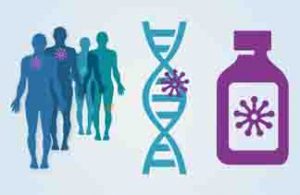Targeted Therapy
Targeted cancer therapies block specific proteins or genes that help cancers grow and spread. For some types of cancer, they may work better than other treatments like chemotherapy.
Targeted therapy was approved for many types of cancer, including those of the breast, prostate, colon, and lung. But they only work if your tumor has the right target. And targeted therapies can often stop working if the target changes or your cancer finds a way around the treatment.
Researchers are learning more about the changes that drive cancer. This could lead to better targeted therapies in the future.
Types of Targeted Therapies
There are two main types of targeted therapies: small molecule medicines and monoclonal antibodies.
Small molecule medicines are small enough to slip inside cancer cells and destroy them.
Monoclonal antibodies are too big to get into cells. Instead, they attack targets on the outside of cells or right around them. Sometimes they’re used to launch chemo and radiation straight into tumors. You usually get them through an IV in a vein in your arm at a hospital or clinic. Sometimes they’re given as a shot under the skin.
The generic names of monoclonal antibodies end in “-mab.” Bevacizumab (Avastin) is a monoclonal antibody that works by blocking blood vessels that feed tumors.
Scientists have come up with many small molecule meds and monoclonal antibodies that make use of different targets to treat cancer in different ways.
